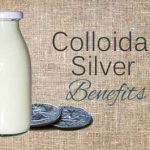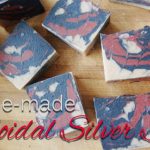Sometimes I like to imagine what it would have been like living life more than a century ago. The horse and cart, eating wholesome home-made foods from the garden or farm, sewing one’s own clothes, perhaps even making home-made soap for household use and to clean an entire family. Imagining this way of life feels more natural – what would life be like without all the modern technologies or large corporations dominating the world? Think The Waltons… although they had cars in the show!
From my observations of the modern world, many products are mass produced by corporations for profit and convenience, using synthetic ingredients which may provide lathering, fragrance and preserving the product but without the cost, especially in comparison to a natural product. They also meet our need and demand; many people just don’t have the time to keep up what with their busy and hectic lifestyles so they’ll buy what is readily available. In relation to soap and cosmetics, it seems many products are made without consideration or motivation for the consumers’ health in mind. This is evident because of the controversy that exists in relation to toxicity levels coming from many ingredients used in cosmetics, as well as products for the hair and body.
Would it be a wise choice to risk putting these on our skin?
Personally, I’ve found that most store-bought shampoos and conditioners leave my hair greasy the next day; although they smelled good upon application, after a day they left my hair with an odd smell. I cringe when I look at the labels and try to make out the ingredients these days, they really are a mile long and most are too hard to even pronounce!
Then there are cosmetics, hair sprays, lotions and creams, regular toothpaste, and even nail polish. All of which I rarely use or have ceased using altogether. I’m still in the process of swapping other household products with natural alternatives.
Benefits of natural soap
The first thing you will discover when researching natural soaps is that they retain their natural glycerine. What is glycerine, you may ask?
Glycerine is a natural component of soap formed during the soap making process. It is stated to be a valuable (if not the most) component of soap making because of its excellent skin moisturising properties. Glycerine is a ‘humectant’ which means it likes to attract water. This is why natural soap bars like to ‘sweat’, most obviously in a humid environment. This sweat is actually the glycerine attracting the water from the air to the soap and this is exactly what I experienced when making soap for the first time. Because we live in a humid environment, most of the soaps I made using soft oils like olive oil and sunflower oil had sweat beads on the surface even though they were cured for long enough (let to sit for 4-6 weeks).
It’s been common practise for manufacturers to extract the glycerine from the soap making process to either sell or use in more expensive lotions and creams. So basically, the soap that we buy from the shop is just the leftover parts from the soap making process after the glycerine has been extracted. I noticed however, that some commercial soaps label glycerine in their ingredient list. This is probably glycerine that is produced from a petroleum by-product called propylene. 1 I surmise they put this imitation glycerine back into the soap, otherwise it would be too drying for the skin.
Ingredients are 100% natural
One of the greatest benefits to home-made soap is that you know all the ingredients that go into the soap are natural. This is what I love about making my own soaps; there are no surprises and you can pick and choose oils and add ingredients to exactly suit your needs and requirements. It’s easy to avoid ingredients that one may be allergic to. Home-made soap may also be great for people with sensitive skin or skin conditions.
There are many recipes on the net that require simple bar soap to create a natural laundry detergent, for example. But where can you find simple and basic soap these days? I found it very difficult to source even one bar of soap from the shop that I felt was safe enough to grate and use within a recipe. Even plain and unscented laundry soap bars from the supermarket are detergent based with a list of dubious ingredients.
Searching high and low for a shampoo has been a huge struggle for me for many years. Even the shampoos labelled ‘organic,’ ‘pure’ or ‘all natural’ had an ingredient or two added that were a cause for concern. I had to make sure I included the words ‘raw’, ‘pure’ or ‘100% natural’ in the search list when shopping online for shampoos. I did find some and have used a few 100% natural shampoos and soaps, but I just wasn’t quite happy with them for one reason or another. I tried liquid castile soap, but for some reason it just felt greasy on the hair. At one stage we were buying 100% pure olive oil (castile) bars to shampoo our hair with and they worked much better than the liquid castile I tried, downside being that they easily turned mushy if left in water for too long. I was after a liquid soap that worked well with my hair, rather than a bar soap to wash hair with.
Results of home-made soaps
Some of the oils I have used in these recipes include coconut oil, olive oil, rice bran oil, sunflower oil and avocado oil. Ingredients I’ve used are: red clay, white clay, olive green clay, dead sea mud, oats, honey, cocoa, coffee, spirulina, paprika, orange, activated charcoal, magnesium, coconut milk, sugar and salt. The star ingredient used in mostly all of the soaps was The Amber Tree high-quality colloidal silver, which replaced the entire water component in the recipes. Colloidal silver is used for many skin and health conditions in our household, so it only made sense to add colloidal to all our home-made soap recipes. Read more about colloidal silver here.
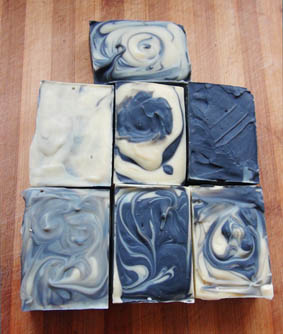
Peppermint and charcoal colloidal silver soap – experimenting with swirls
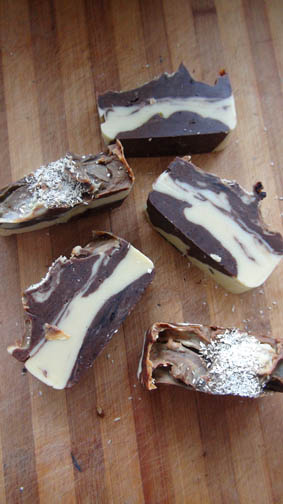
Coconut milk and chocolate colloidal silver soap
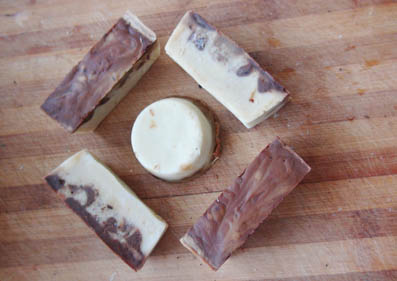
Coffee infused colloidal silver soap
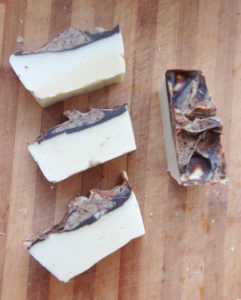
Cocoa and coffee speckled colloidal silver soap
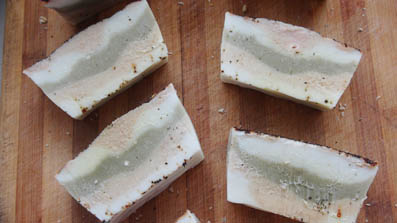
Eucalyptus scented soap, coloured with spirulina and turmeric (colours faded over time)

Orange infused colloidal silver soap, coloured with paprika
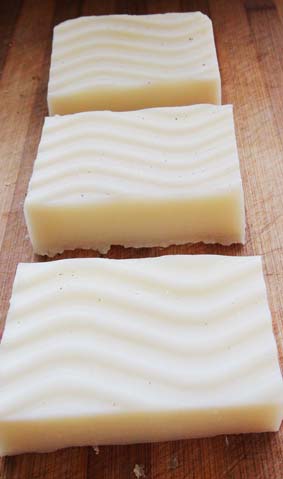
100% coconut oil colloidal silver soap
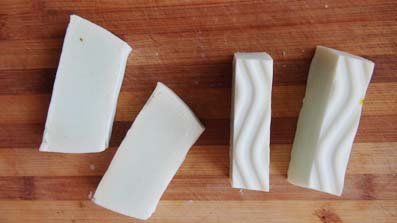
Pure castile soap with 100% extra virgin olive oil (1 batch made with colloidal silver, one without)
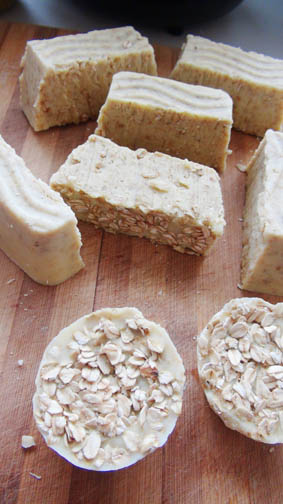
Coconut milk, oat and honey colloidal silver soap
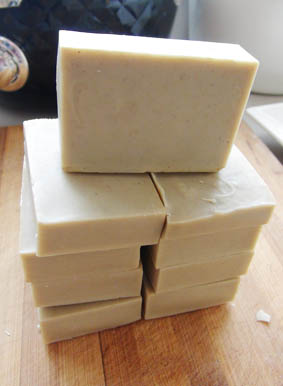
Olive green clay colloidal silver soap, scented with tea tree
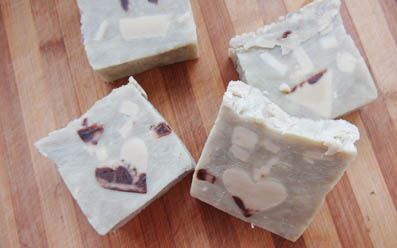
Hot process dead sea mud colloidal silver soap, scented with eucalyptus and lavender
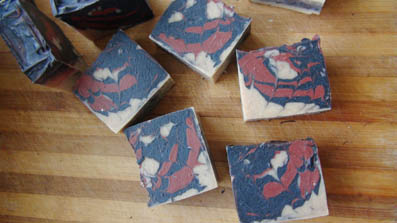
Activated charcoal and red clay colloidal silver soap, scented with eucalyptus and lavender
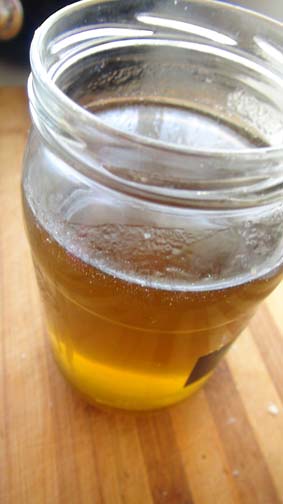
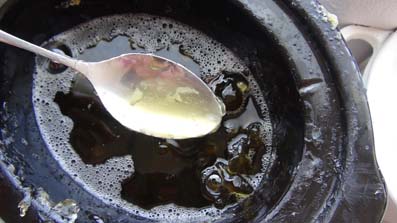
Liquid soap made from coconut oil, olive oil and rice bran oil.
Turned into peppermint and lavender shampoo.
Using natural 100% hand-made soap is a valuable asset for the health and wellbeing of our entire family. Not only does it contain natural glycerine that moisturises skin, but it can be used for all applications around the home including cleaning products, laundry detergent and hair and body use. Being able to avoid synthetic ingredients that can pose health risks to humans and animals alike is a sigh of relief.
Home-made soap is going back to simple – the way nature intended. 😊
Source
1. https://www.livestrong.com/article/136368-types-glycerin/


